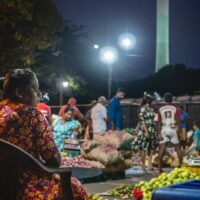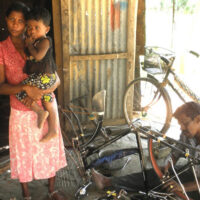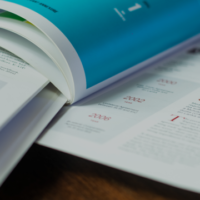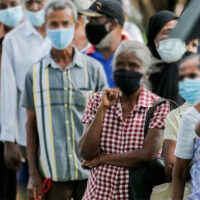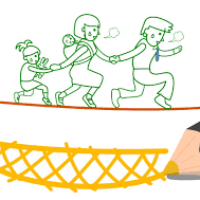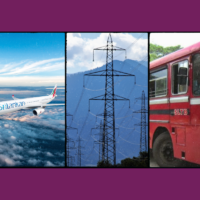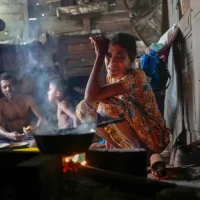CEPA Supports the Media to Strengthen its Reporting on Development, Poverty and Social Justice
By Neranjan Maddumage
On 20 December 2016
The Centre for Poverty Analysis (CEPA) recently organised a panel discussion on strengthening the media’s role in reporting on development, poverty and social justice. The event held on 30th November 2016 at the Sri Lanka Press Institute was organized in parallel with CEPA’s Media Fellowship Programme on Poverty and Development which is being conducted in association with UNESCO. Dr. Ranga Kalansooriya, Director General of the Government Information Department was the keynote speaker of the event. Following the keynote address a panel discussion took place with Mr. Nalaka Gunawardene (Science Writer, Senior Journalist, Broadcaster and Development Communicator, Mr. M. J. R. David (Senior Lecturer, Department of Sinhala and Mass Communication, University of Sri Jayewerdenepura) and Ms. Seetha Ranjani (Convener, Free Media Movement). The panel discussion was moderated by Mr. Hilmy Ahamed (Chairman and Chief Executive Officer of Young Asia Television and Member of the Board of Directors, CEPA). after a brief introduction on the scope of the panal discussion by Mr. Krishan Siriwardhana, Media and Online Communications Coordinator at CEPA. Mr. Krishan Siriwardhana, also emphasised the necessity of objective media reporting on development and poverty related causes.Following the panel discussion participants were given the opportunity to raise questions and share their opinions.
The keynote speech was delivered by Dr. Ranga Kalansooriya, Director General of the Government Information Department. In his speech, Dr. Kalansooriya stated that the continuous violations of media ethics by media outlets in the recent past shows the need for a proper and independent regulatory system for media stations. He further mentioned that a proposal had been approved by the Cabinet to establish an independent Board to regulate the contents of news published in print media, broadcasting media and registered web sites. However, he emphasised that this needs to be independent of politicisation and should be regulated by the industry itself in order to promote professionalism and ethics along with a free and pluralistic media. In response to questions from the participants he stated that this government proposal is not about changing the content of the news in favor of the incumbent government, but that public opinion would be sought by the government to draw up the code of ethics which is to be followed by media. Public views can be submitted up to 31st December 2016. In his speech he also encouraged the promotion of constructive journalism among local journalists rather the promotion of negative reporting; this change of mindset could only be achieved through positive attitude changes in the newsroom.
According to Mr. Nalaka Gunawardene, the media’s role in reporting on development and poverty related causes should be seriously scrutinized and the industry should accommodate a shift in the perception, from its present narrow approach to a more holistic one. He further affirmed that the media has a social obligation to report on poverty and development related issues with a broader perspective. Poverty, Nalaka said, is often being cited by media in purely financial or monetary terms, where its socio political and cultural complexities often remain untouched.
Mr. Gunawardene further mentioned that the trends towards development reporting have always been there, but most reporting focuses on either over enthusiastic sugar-coated reporting or harsh malicious reporting, neither of which benefit society. What we need, however, is for local media outlets to take an objective stand point when reporting on development and poverty related issues.
Mr. Krishan Siriwardhana of CEPA directed a question to Mr. M. J. R. David on why graduates are reluctant to enter the field of media and journalism even if universities offer degrees on mass media and communication? Mr. M.J.R. David said that the main reason was that university graduates prefer to join the public sector or join professions which would assure them a fixed income. Mr. David also spoke on distinguishing between relative poverty and absolute poverty. He stated that many journalists are less likely to report on relative poverty and poverty should be analysed as a matter of human dignity and self-respect beyond its physical aspect.
Ms. Seetha Ranjani, criticised the patriarchal nature of mass media. She further mentioned that issues related to women are often over exaggerated by media or touched upon at a superficial level. As an example she cited the reporting on women who work in the Middle-East as domestic servants. The media usually portrays these women from a negative angle, with the cases of violence against these women being very frequently reported but stories of their contribution to the family and national economy being undervalued and merely portrayed at best.
The session was concluded by Mr. Hilmy Ahamed who presented an overall summary of the discussion. He presented a summary of proposals for empowering the media to report on development, poverty and social justice. Mr Ahamed concluded noting that there is a poor listening culture in the media where media personnel often act according to their own discretion rather than listening to what society has to say. This he said fails to empower the voiceless in our society.
